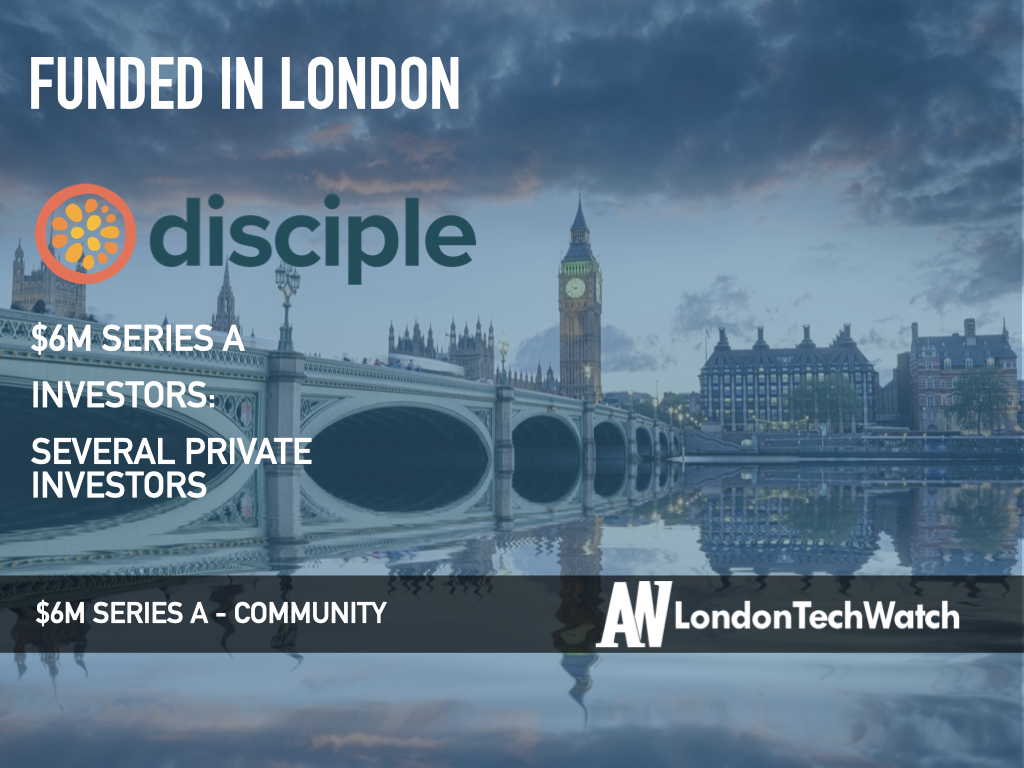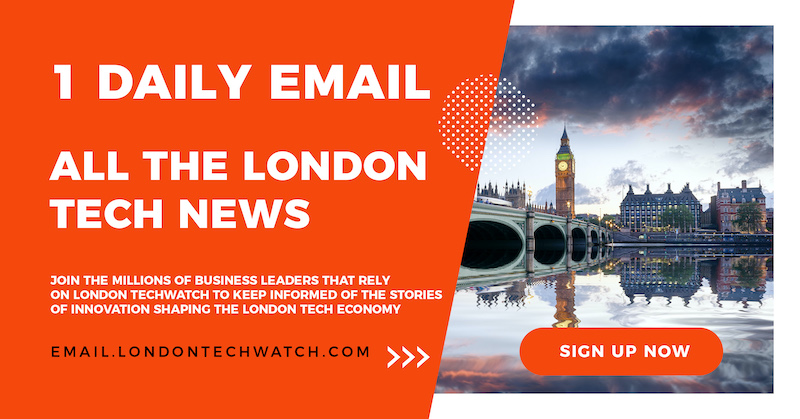The meteoric rise of the newest social networks is largely because of the work of creators rather than the network itself, which has many creators questioning the dependency on individual platforms. Creators spend countless hours developing content with little reward and face the constant risk of algorithm changes, policy shifts, bans, and monetization restrictions when they opt to build their followings on one of the popular social networks. Disciple Media is a SaaS platform that lets these individuals own the access to their audiences by allowing creators to build their own digital communities. The platform offers branded social spaces on the web, iOS, and Android that are easy to set up and maintain. Functions available include unlimited groups, messaging, push notifications, live streaming, and a host of monetization options including subscription, selling courses, and exclusive content. Disciple currently hosts over 2M users across 500 communities.
London TechWatch caught up with CEO and Founder Benji Vaughan to learn more about how his own experience in the music business inspired the platform, the company’s strategic plans, and latest round of funding, which brings the total funding raised to $6.14M.
Who were your investors and how much did you raise?
We raised a Series A round of $6M in total, from several private investors including Nick Mason, the drummer from Pink Floyd; Sir Peter Michael, CEO of cray computers, founder of classic FM, Quantel, and Cosworth Engineering; Rob Pierre, founder and CEO of Jellyfish; and Keith Morris, the former chairman at Sabre Insurance.
Tell us about your product or service.
Disciple is a SaaS platform that enables online creators and entrepreneurs to build community led-businesses. We essentially allow anyone to build their own digital community, with all of the various features that entails, outside of the monolithic social networks and legacy technologies like email. Creators on our platform build communities about anything and everything – from fan groups for bands, to fitness influencer support communities, to surprising outside-the-box ideas like cattle farmers sharing information about their cows.
What inspired the start of Disciple Media?
My background is in music. I had a career as a techno producer and went on to run a record label. In that world, I spent a lot of time helping artists communicate with audiences that were passionate about their music. Over time, I realised that these artists were very heavily reliant on platforms like Facebook – a platform that owns all the data on their fans. I decided there must be a better way for communities to grow, outside of these social networks that own the information about audiences and charge hosts to talk to them. And that’s how Disciple started.
The fundamental difference between Disciple and other methods of community building, like Facebook and Instagram, is that with Disciple, the power and the ownership is in the hands of the community host, not us.
So, if you were to set up a London Tech Watch community on Disciple today, and all of your most avid readers downloaded your app and began interacting with you on there, we would never get in-between you and your readers. You’d be able to put out messages to them whenever you want and drive really high engagement as there wouldn’t be hundreds of attention-sapping ads getting in the way.
We’ve found these types of communities create much deeper, long-lasting, reciprocal relationships between creator and audience.
What market you are targeting and how big is it?
Our market is basically anyone who creates anything and wants to share it with the world. It’s super broad because there is an infinite number of things people love and want to share.
But last year we released some data estimating the addressable market for the creator, or ‘passion’, economy was worth over $38B globally in 2019.
What’s your business model?
As I’ve mentioned, creators have full access and ownership over the data associated with their communities. We don’t get involved and don’t fill their feeds with ads. The way we make money is that we charge creators to host their communities. The rest is up to them.
How has COVID-19 impacted the business??
There’s been a lot written about how the pandemic created this amazing new economy where people on furlough decided to go into business for the first time, and we’ve really seen the impact of that.
Through the course of COVID, we’ve grown far more than we ever thought possible. Our annual recurring revenue has grown by over 160% in 2020, and we recently passed the milestone of two million members using our platform.
What was the funding process like?
The financial side of the business is always stressful, but fortunately, we’ve got some amazing investors who really believe in what we’re doing here at Disciple. I’m proud to have them on board.
What are the biggest challenges that you faced while raising capital?
The biggest challenge is that the creator economy as small business, as opposed to influencers, is an emerging concept. This is coupled with the fact that anything that involves people socialising online has been seen as owned by Facebook and YouTube until recently. However, both these challenges are rapidly turning into opportunities.
What factors about your business led your investors to write the check?
Our investors, like us, are really just big believers in this idea that we can use technology to empower any entrepreneur or creator to build a super exciting community-led business from the ground up. This creator economy is a relatively new phenomenon, and it’s an incredibly exciting time. Our investors, I believe, see that potential brave new world and want to help us be a part of it.
Our investors, like us, are really just big believers in this idea that we can use technology to empower any entrepreneur or creator to build a super exciting community-led business from the ground up. This creator economy is a relatively new phenomenon, and it’s an incredibly exciting time. Our investors, I believe, see that potential brave new world and want to help us be a part of it.
What are the milestones you plan to achieve in the next six months?
We are planning to more than double in size this year, we have done great product features coming but most importantly we wanted to help our community hosts hit their milestones, their objectives.
What advice can you offer companies in London that do not have a fresh injection of capital in the bank?
There’s nothing wrong with being scrappy when you need to be! Obviously, investment has a big impact when you want to achieve big things – but that doesn’t mean you can’t build from the ground up. Disciple is a SaaS business now, but when we first started, it was essentially a niche app-building agency with a small number of paying clients who allowed us to keep going and innovating.
So, I’d say if capital is a problem for young businesses, then finding a strategy that works is the best way to convince others to invest in you.
Where do you see the company going now over the near term?
We want to continue to grow at a high rate, and don’t see any reason why we shouldn’t be able to. The creator economy is absolutely booming, and many of these young businesses are realising that their marketing efforts can’t just begin and end with properties owned by Facebook.
They are beginning to fly the nest and create communities of their own that bring more value to them and their audiences. We believe we’re incredibly well placed to define and capitalise on that trend.
What’s your favourite outdoor activity in London
Music is my first love, so outdoor gigs are where it’s at for me.






